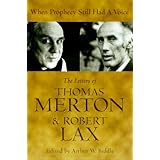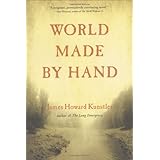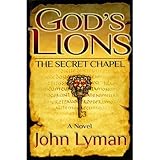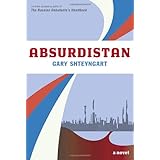
Average Reviews:

(More customer reviews)Professor Sibley claims that "this book is the first to offer a full treatment of Florence as first lady, rather than as a supporting actress in a drama of scandalous dealings, womanizing, and illicit booze." (page 2), but is incorrect on two counts. First, historian Carl Anthony has already done a masterful job detailing the life of Florence Harding ("Florence Harding: First Lady the Jazz Age and the Death of America's Most Scandalous President"). Second, her book unsuccessfully tries to divorce the life of Florence from her adulterous husband Warren. You cannot write in a vacuum. This is unfortunate, for in order to understand Florence, you have to deal with her husband. And when she does touch on Warren's sordid lifestyle, she does it in a way that always gives him the benefit of the doubt.
The cover-up of Harding's scandalous lifestyle began with the Harding Memorial Association, formed shortly after his death. Family members then, and even now, have managed, through lawsuit, and intimidation, to keep pertinent factual information from competent historians. The author finally tells us on page 240, what all the rest of us have known all along, that because of this continual cover-up, no competent biography can be written, including hers. I quote: "Shrouded in mystery, the Harding years reminded subject to rumor and speculation of the worst kind, chiefly on the basis of the scandals that surfaced after Harding's death. Florence contributed to this poisoned picture in other ways; she refused to endorse any biography or collection of her husband's speeches that she did not direct or edit herself." (Emphasis mine).
Thus, this book is not the final full treatment that the author pretends. It is a rehash of old information. Little is learned from Florence's diary, which the author reports to have seen, but does not correctly cite, nor does she disclose where these papers are at present. Her treatment of Florence as First Lady, which was to main course of this book, has been relegated to an appetizer inserted in chapter four. And it consists of very thinly researched material concerning her life in the White House, her close friends, her kidney illness, and her experiences on the presidential trip out West. Most of this was fluff: tidbits revealed by news articles, but never really getting at the "real" Florence Harding.
Instead of a proper Bibliography, the author follows another Harding rehabilitation entrepreneur, Phillip Payne (who wrote his own version of Harding: "Dead Last"), under the rubric of "Biographical Essay," a final section of the book in which she cavalierly dismisses author upon author, only because they told the truth about the Harding scandals. She needs to heed her own advice given on page 324, note 27: "(There are) dangers of writing biographies and the ways in which perceived partisanship can poison a book's reception." Sibley is guilty herself of "corrosive bias, assiduous mudslinging" against other academic authors, without any proof provided in her refutation of them. Even Professor Sibley's Introduction follows the same pattern as Phillip Payne's book on Harding: a diatribe against previous biographers of Harding...without offering any proof whatsoever. This is pure balderdash. It's almost as if Phillip Payne was the ghost writer for this book. The parallels between the Payne book and this one are striking. In fact, as I read page after page, I wondered who really was writing this book.
Other problems with the book include:
On page 23, the author inaccurately states that Francis Russell kept the Harding love letters to Carrie out of his book, ("The Shadow of Blooming Grove,") "by agreement with the Harding Memorial Association." The truth is that the Memorial Association and Ohio Historical Society, in concert with still-living Harding relatives, brought a lawsuit against Russell's publisher, which publisher had to pay thousands in a settlement to the relatives, and agree to sequester the documents until 2014 in the Library of Congress.
Sibley doubts the veracity of Evelyn McLean, Chief Usher Ike Hoover, Alice Roosevelt Longworth, and Head Housekeeper Elizabeth Jaffray, and their eye-witness, first-person descriptions of Florence Harding's volatile interaction with husband Warren, because it is "completely out of character with mellow Warren." (page 166). Mellow Warren? It's ludicrous that the author denies that Harding had any booze in the White House at all; even though Florence was present serving the mixed drinks herself on many occasions. Grammatically speaking, the author over uses the exclamation (!) point. She has also ignored the issue of Warren Harding's Black heritage: he was an Octoroon. Sibley pleads ignorance on just how Florence discovered Warren's affair with neighbor Carrie Phillips; yet admits that he had purchased her a new Buick car. The author also omits telling about the thousands of dollars of hush money paid by the Republican Campaign Committee to Carrie and her husband, sending them on a round the world tour with a monthly income, keeping them from the prying eyes and ears of reporters. The author's dismissal of the Nan Britton papers opened in 2000 is unfortunate, for she left other sources untapped. She ignores the known facts of Harding's illicit child by Nan, and the other women Warren had affairs with, including his US Senate secretary. Sibley states that Harding didn't father any children because he had had the mumps! (Emphasis mine). While stating that Gaston Means' book on Harding as a fake, she doesn't tell you that Florence had actually hired Means as a private eye to investigate Warren's illicit behavior. No new pictures are included in the book; and several have no caption to identify the subjects. Sibley skips over the Teapot Dome Scandal entirely, by flatly denying that the Harding's knew anything about the scandals early on. Mistakes are everywhere in this book, ad nauseum. Dr. Joel Boone was not a homeopath physician, as stated on page 158. Nothing is said about how "Dr." Sawyer, the homeopathic physician got his job at the White House and his lack of medical training, not to mention the lack thereof of Harding's father. Harding's special train was continuously misspelled as "The Superbe" (p. 182, 215, et.al.) Harding's private Pullman "The Superb" was built in 1911, and is now housed at the Southeastern Railway Museum. This book needs a careful editorial audit and re-write. I also have to wonder about this author's credentials, when she stated that one of her best sources of information was what she gathered from Ebay!
Professor Sibley is an academic "reputational entrepreneur," who has attempted to rehabilitate the reputation of Florence Harding and her husband Warren. It simply cannot be done. Warren Harding remains the worst U.S. President, and Florence knew what was going on in his private life. I wished for more space given Florence Harding as an activist First Lady.
Click Here to see more reviews about:
First Lady Florence Harding: Behind the Tragedy and Controversy (Modern First Ladies) Get 18% OFF
Get 18% OFF
Click here for more information about First Lady Florence Harding: Behind the Tragedy and Controversy (Modern First Ladies)





















